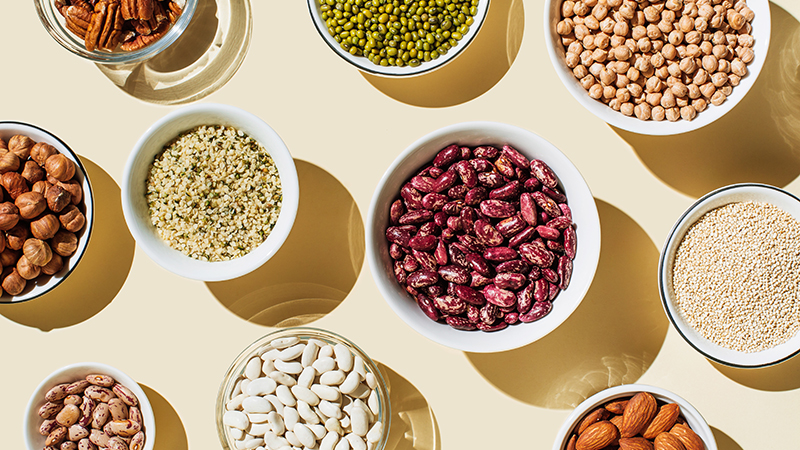The Heart Value of Being Vegetarian
How a Vegetarian Diet Helps Heart Health
Nutrition is an essential component of heart health. Eating well can help maintain healthy levels of cholesterol and blood pressure as well as a healthy weight. And a vegetarian diet may be particularly good at ensuring your body gets the nutrients your heart needs.
Vegetarian diets can vary in their restrictiveness. Some vegetarians follow a vegan diet, which only includes plant products: fruits, vegetables, legumes (dried beans and peas), grains, seeds and nuts. Other vegetarians also consume cheese and dairy products (lactovegetarian), dairy and eggs (ovo-lactovegetarian or lacto-ovovegetarian) or dairy, eggs, and chicken or fish (semi-vegetarian).
Your heart can benefit from any of these vegetarian diets in a number of ways. Generally, a vegetarian diet includes foods such as soybeans, seeds, avocados, nuts and plants that are high in fiber and unsaturated fats, which can help reduce cholesterol. Vegetarians also frequently have a lower risk of obesity, high blood pressure and diabetes, all of which are considered risk factors for heart disease.
Three Perks of a Vegetarian Diet
- Fiber fights high cholesterol: The vegetarian diet is high in fiber from fruits, vegetables, beans and grains, which is good for managing cholesterol.
- Fewer calories for a healthy weight: Not only does a vegetarian diet eliminate fats from animal products, it replaces them with high-fiber foods, which fill you up more so you eat less, lowering your risk of obesity.
- Extra antioxidants: Eating more fruits and vegetables means you’re getting more of the nutrients, like antioxidants, that protect against heart disease.
Risk of Deficiency
Restrictive diets, including a vegetarian diet, exclude certain foods, which means you might have to work a little harder to ensure you’re receiving all of the nutrients your body needs.
If you’re pursuing a vegetarian diet, make an extra effort to include the following nutrients in your meal plans. You may want to talk to your primary care physician or meet with a nutritionist to discuss potential sources.
- Protein
- Iron
- Zinc
- Calcium
- Vitamin B12
- Vitamin D
- Omega-3 Fatty Acids
Not Entirely Effortless
A vegetarian diet is not necessarily a healthy diet. Just because you aren’t eating meat doesn’t mean you are automatically eating well. It’s important to watch your sweet and fatty food intake, both of which are low in nutrients and high in calories. Whole or unrefined grains are good choices, and fat-free or low-fat dairy products are recommended if you’re including dairy in your diet.
A vegetarian lifestyle, in any of its forms, can be a great foundation for a heart-healthy diet. But, whether you’re eating animal products or not, variety will help ensure you’re getting all the nutrients your body needs.





